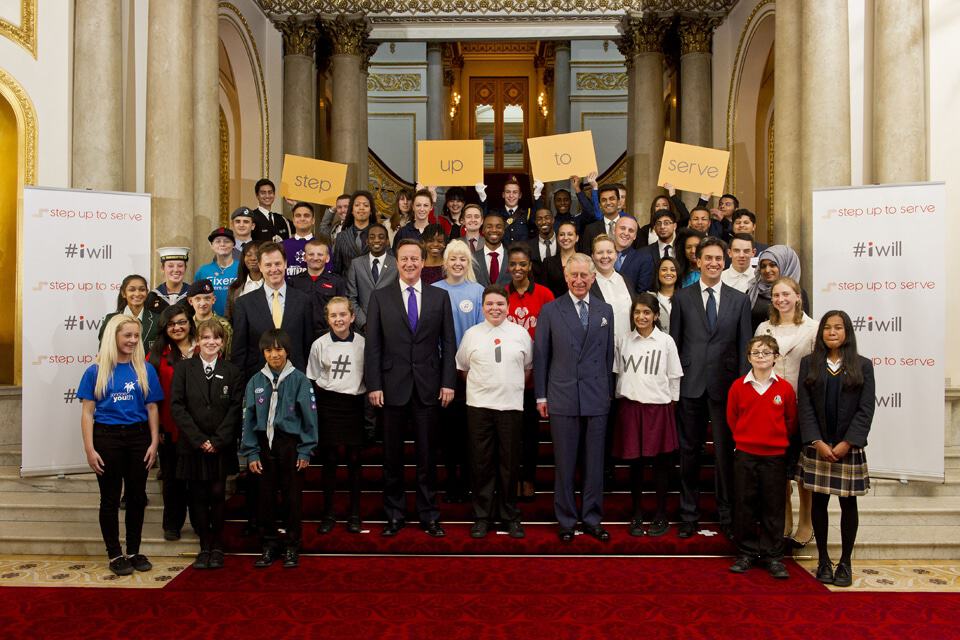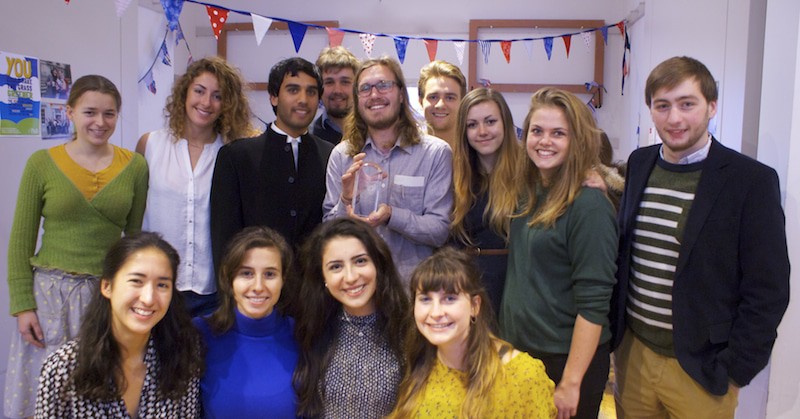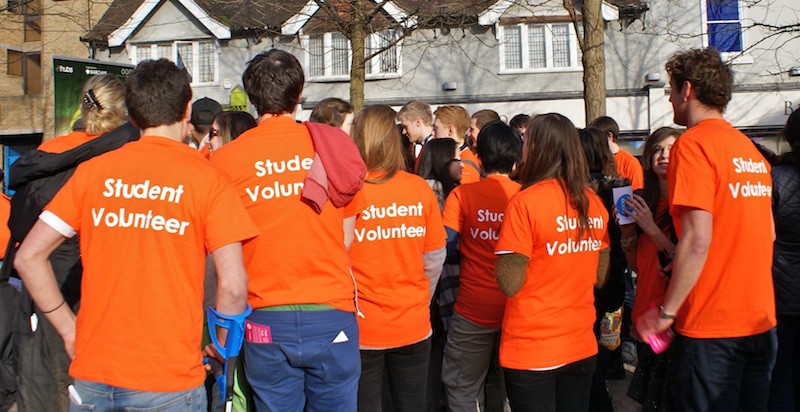It’s that time of year again: Student Volunteering Week is upon us. Of course, at Student Hubs the planning started 11 months ago; in partnership with NUS, we have been coordinating the national campaign for the past three years. With over 100 FE and HE institutions registered to participate, ten institutions in receipt of grants to boost their local activities and five fantastic students shortlisted for the Student Volunteer of the Year Award, it’s time for another amazing Week to begin.
Since SVW 2014 we have seen a fantastic surge of investment in the youth social action sector. Step Up To Serve’s #iwill campaign has shone the spotlight on the value and impact created by young people who volunteer, campaign, fundraise and advocate for causes they are passionate about.
With HRH Prince of Wales and the three party leaders supporting the campaign to increase the number of 10-20 years olds participating in social action, and businesses, charities and government vesting their pledges to make this happen, the road to 2020 is looking bright.
However, we have been here before. As Justin Davis Smith, Executive Director of NCVO, has drily noted history, in this case, does indeed repeat itself. As documented in Dr. Georgina Brewis’ excellent A Social History of Student Volunteering, in 1932 the then Prince of Wales launched a public campaign to get more students involved in voluntary action. Sound familiar?
Our sector has always been beholden to boom and bust, with ‘volunteering’ and ‘community action’ undergoing more rebrands than we care to remember: from post-war national service to the Games Makers in 2012. Throughout this time, the level of student volunteering has remained constant at around 30% – a glass ceiling which no amount of investment or cheerleading from government, HE funding bodies or royalty has been able to smash. So, how can we break down the well-known barriers and inspire more students to get involved and create the impact our society needs?
You only need to look at the shortlisted nominees for the Student Volunteer of the Year Award to see the amazing potential of students to shape a better world. From mental health to food waste, these five students are testament to the dedication, innovation and ambition of students to create change through social action. We’re really pleased to see one of our own students, Henry from Oxford Hub among them – a testament to the hard work of he and the whole committee over the past year (also highlighted by their receipt of the Queen’s Award for Voluntary Service, awarded in June 2014).
In our recent report, ‘Students, Volunteering and Social Aciton in the UK: History and Policies’, we reviewed the chequered landscape of student volunteering over the past century: tracking the peaks and troughs of a sector that is always among the first to receive cuts when budgets are tight.
We drew conclusions, based on lessons from history recent and distant, about how we, as a sector and in collaboration with others, could secure a sustainable and meaningful future for student volunteering.
- National support is a vital element and must be strong and sustainable
Recommendation: Support for student social action should not be beholden to boom and bust. We need to hold a cross-sector review of how national support can be sustainable and reliable long into the future.
- Students must must shape and lead their social action for this work to be both effective and popular amongst students in the long term
Recommendation: National infrastructure and frontline delivery organisations should exist to guide, support and incubate student leadership in social action. A tri-annual audit of the state of student-led volunteering should be conducted both locally and nationally.
- Students do their best work in the community when it is relevant to their academic skills and interests, following the service learning model in the US
Recommendation: A review should be conducted to look at barriers to the uptake of service learning in the UK.
- A desire to make a difference continues to be the primary motivation for student volunteers
Recommendation: To encourage more students to volunteer, we need to appeal to their interests, skills and desire to make a difference. Even if enhanced employability can be a positive outcome of volunteering for individuals, these messages should not be overemphasised to increase levels of involvement.
5. A plurality of routes into student volunteering and social action exists, depending on the culture and needs of individual institutions, and many students engage in activities without formal support from their institution
Recommendation: A range of tailored approaches should continue to be supported. No one-size-fits-all model can be adopted, but setting more common standards of impact measurement would help to raise the quality of provision at different institutions.
Student Volunteering Week is the perfect opportunity to celebrate the impact created by students through social action, and to inspire more to get involved and start making a difference for individuals, communities and society at large. At Student Hubs, we are excited about the upcoming opportunities to embed social action in the university experience – empowering a new generation of active, powerful citizens who will change the world for the better.



